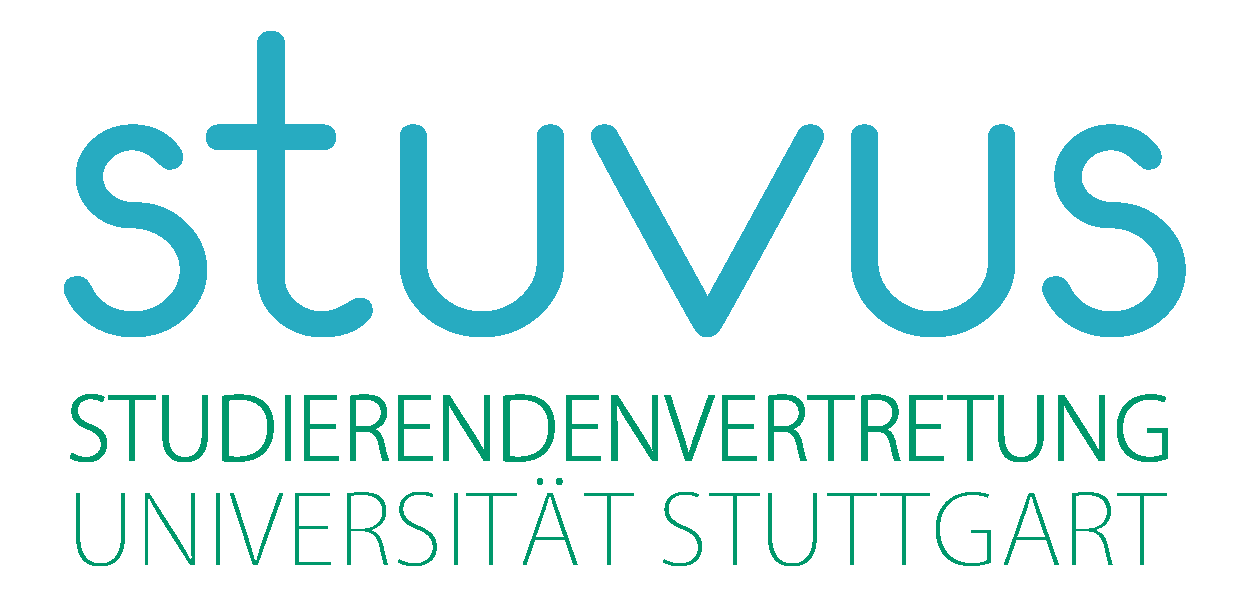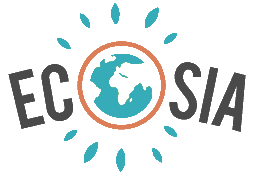In June 2020, the Leitfaden für Nachhaltigkeit bei stuvus (guideline for sustainability at stuvus) was introduced. This guideline is supposed to give information on how to consider sustainability criteria at purchases, on journeys, conferences, etc., in order to create consciousness for sustainability also among stuvus, student groups and students.
In order to make it easier for everyone to meet these sustainability criteria, this website is supposed to list recommendations on how to purchase products or for instance organize conferences under ecologically and socially sustainable aspects.
CO2-eq-Calculator
An important step towards a more sustainable lifestyle is to become aware of one’s own ecological footprint. This includes, in particular, the personal impact on climate change. In Germany, a person is responsible for an average of 11.6 tons of CO2 equivalents (CO2 and other greenhouse gas emissions) per year. However, only about 1 ton of CO2-eq is compatible for our ecosystem Earth.
You can calculate how much CO2-eq you are currently emitting with the CO2-eq calculator of the German Federal Environment Agency and thus also determine the potential for reduction:
https://uba.co2-rechner.de/en_GB/
Important: We do not want to give the impression that the problem is caused in particular by individuals or can be solved by a reduction in emissions at individual level alone. The model of the personal carbon footprint became known through an advertising campaign from the oil company BP to distract from the systematic changes required. This should be dealt with accordingly critically.
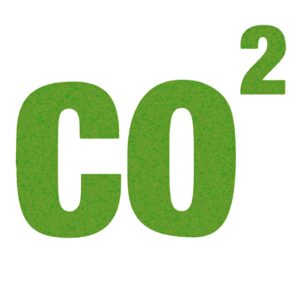
Online Shopping
The Corona-Crisis has hit the retail sector very hard. Due to the lockdowns, fewer and fewer people are going into the city centers and small stores are losing their clientele. People are now increasingly shopping online. The first choice is usually Amazon. But many small stores in Germany have also opened an online store and it is possible to order from your couch.
Buying online from stores here out of the region guarantees that they will survive despite the Corona-Crisis. It’s much more sustainable to choose a local retailer’s online store than to simply order your products from a corporation like Amazon.
So, before you go shopping for books or tech gadgets on Amazon, check to see if they’re available at a local retailer.
On the website kaufinbw.de, for example, you will find an extensive list of online shops from local shops in Stuttgart and the surrounding area.

Consumables
Everyday university life can also be made more sustainable at the desk. Buying products made from recycled materials is particularly recommended for consumables such as printer paper and writing pads. Recycled paper comes in different levels of whiteness, with lighter paper requiring more energy to produce and being more expensive. Recycled paper is certified, for example, by the Blauer Engel environmental seal or the FSC Recycled seal.
The production of printer cartridges involves a large consumption of petroleum and the ingredients require costly disposal. It is therefore important not to dispose of printer cartridges in the residual waste, but to return them to specialist retailers or electronics stores for recycling. Therefore, it makes sense to also buy recycled ink cartridges, which are offered by some online stores. Ecological printer ink, which is based on plants, does not yet exist for private printing needs, but is already used by large printers, such as dieUmweltDruckerei, Umweltdruckerei lokay, printzipia or die grasdruckerei (unpaid advertising).
More sustainable alternatives can also be used for smaller consumables, such as pens, highlighters, etc. Conventional products are often short-lived and contain harmful substances. The FSC seal distinguishes sustainably produced wood in pencils. Erasers should be made of natural rubber and labeled “PVC-free.” Alternative highlighters can be soft, dry highlighters made of wood or can be refillable.
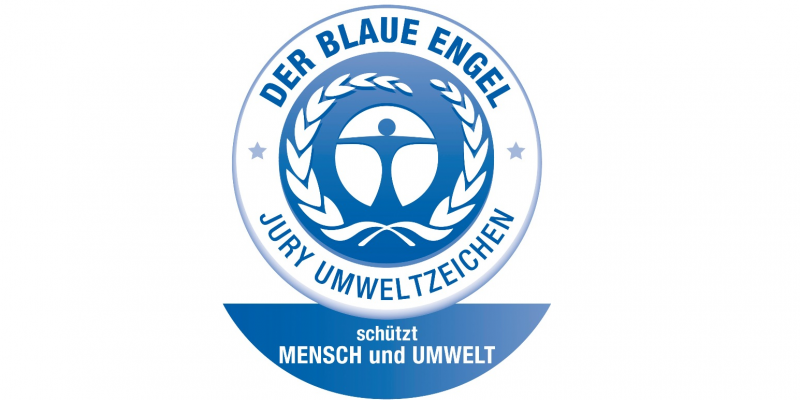
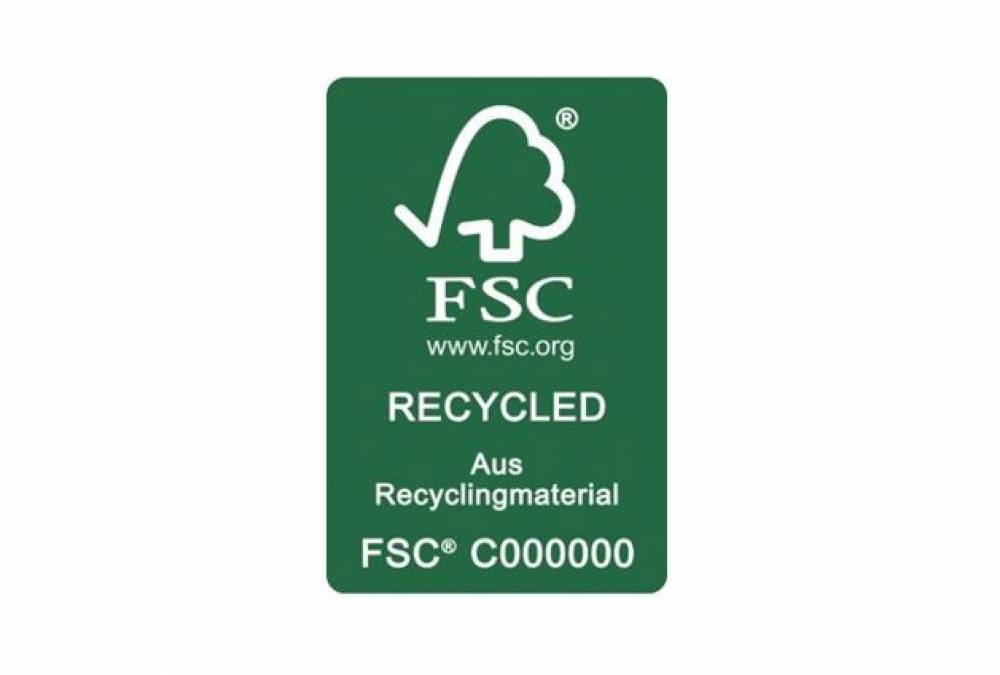
Sustainable Nutrition
Every day, we eat several meals. Unfortunately, we rarely make a conscious decision about the sustainability of certain foods. However, a sustainable diet can make a big difference: For the environment and also for ourselves.
Green Canteen, a working group of stuvus, has therefore set itself the vision of making students’ diets more sustainable, animal-friendly and healthy. With now more than a dozen different flyers, Green Canteen informs about sustainable nutrition as well as other important sustainability aspects.
Four aspects in particular belong to a sustainable diet:
- Reduction of animal products
- Seasonal food
- Regional food
- Products from organic farming
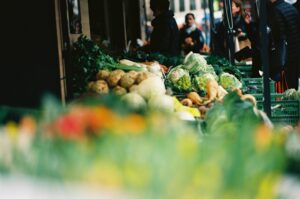
For more information on the first aspect of reducing animal products, see the Green Canteen flyers and websites. To get an overview of seasonal vegetables and fruits, you can have a look at the season calendars of Green Canteen. The best place to get regional vegetables and fruits is at the weekly market next door (there are about 30 weekly markets in Stuttgart). Products from organic farming are usually more expensive than products from conventional farming, but you should not forget that the indirect costs of conventional products are much higher. This refers primarily to the ecological follow-up costs that arise, for example, due to higher pesticide use, the use of mineral nitrogen fertilizers or higher greenhouse gas emissions (see, for example, publications by the University of Augsburg).
Regionality & Seasonality
For regional and seasonal products, the climate and environmental impacts are smaller than for imported and non-regional or non-seasonal products due to the shorter transport distances, shorter storage times, and the avoidance of energy-intensive greenhouses. A better climate footprint when buying regionally applies not only to food, but also to consumer goods, clothing, furniture, and so on.
The following examples are supposed to show you how to purchase regional products in Stuttgart:
Most of the time, regional products like fruits and vegetables are marked by signs like “aus der Region”. It is important to mention that “regionality” is not a protected term and therefore needs a critical view. In many cases, it helps to take a look at the state of origin, but this, of course, only gives information about the state, not the region. However there are different markets or grocery stores in Stuttgart that focus on regional products:
- Regional markets in different parts of Stuttgart, e.g. https://www.stuttgarter-wochenmaerkte.de
- Unpacked markets, e.g. Ohne Plapla in Stuttgart-Mitte & Ludwigsburg, Schüttgut in Stuttgart-West, Tante M. in Sillenbuch, Ganz Ohne in Herrenberg
- There are organic stores all over Stuttgart, that also focus on regionality.
A major part of the production of clothes have been outsourced to countries far away from Germany and Europe. The fact that clothing manufacturing mostly goes along with inadequate working conditions and extensive environmental impacts becomes even for us consumers more obvious. Therefore, it is worth it to check out local fashion labels and stores, where clothes are produced socially and ecologically fair and manufacturing processes as well as working conditions are transparent. In Stuttgart, there are also a few stores, that consider sustainability:
- Greenality – Fürstenstraße 5
- Schlechtmensch – Neckarstraße 86
- Wiederbelebt – Esslinger Straße 14
- Glore – Eberhardstraße 10
- Die rote Zora – Seenefelder Straße 101
- Loyale. Fair Concept Store – Sophienstraße 21
- More labels: Ray the Collection, Anomos, Kipepeo, Eyd, Lovjoj (Labels Eyd & Lovjoj in Glore or Greenality in Stuttgart)
Buying used clothes is even more ressource-friendly. A few second-hand stores are located in Tübinger Straße, but there are also other stores spread across Stuttgart. There are also a few flea markets that are worth a visit. A few examples are as follows:
- Future Fashion Store x Secontique – Sophienstraße 21, Stuttgart
- Frida West – Marienstraße 42
- Vintage Markt – Tübinger Str. 74
- Second Dreams Stuttgart – Tübinger Str. 70
- Stana Second Hand Boutique – Böblinger Straße 115
- Second-Hand Boutique – Neckarstraße 164
- PragA – Second Hand Boutique – Friedhofstraße 57
- Wühli – Robert Bosch Straße 1, Schorndorf
- Rosenrot – Vogelsangstraße 16b
- Flohmarkt Karlsplatz (Saturdays, 8 a.m. – 4 p.m.)
There are also dress exchanges and dress exchange parties organized on a few Facebook pages like Freeguide Stuttgart, Fairtauscht, Kampagne für Saubere Kleidung – Stuttgart and Future Fashion – Community.
When it comes to the purchase of furniture, long transport distances and furniture with a short lifespan from cheap furniture stores should be avoided as well. There are already a few furniture stores that are aiming an ecologically and socially compatible production of furniture. One of these is e.g. the “Grüne Erde Store” that is also located in Stuttgart. Of course, even more resource-efficient is to use furniture that is already there anyway. In Stuttgart and surroundings, you can purchase used furniture for a good price or even get it free-of-charge e.g. on Ebay-Kleinanzeigen, Freeguide Stuttgart, on flea markets, etc.
Local stores, construction markets, electronics shops, etc. should generally be preferred over online retailers. Most of the time, it isn’t even necessary to own all everyday objects yourself anyway. A different option can be a sharing-economy (sharing, exchanging & lending). There are also various options here at the University of Stuttgart:
- Printers: At the university there are printers available for all students. In addition, student groups can print free of charge in the Central Student Council Office (ZFB) on the campus Stadtmitte or at the House of Students (HdS) on the campus Vaihingen.
- Tools: For example, the bicycle workshop at “Nili” (campus Vaihingen) facilitates any bicycle repairs free of charge by lending tools and allowing spare parts to be purchased at cost price.
Podcasts
If you want to learn more about sustainability topics and don’t always want to read through articles, these podcasts are the perfect way to learn about sustainability while doing the dishes or cleaning up. The podcasts are in German, the perfect way to improve your German 😉
- Masters of Change Podcast https://anchor.fm/mastersofchange
- ZWEIvorZWÖLF https://www.zweivorzwoelf.info/
- Der Utopia Podcast – Einfach nachhaltig leben https://utopia.de/ratgeber/utopia-podcast-einfach-nachhaltiger-leben/
- WWF: ÜberLeben https://www.wwf.de/aktiv-werden/wwf-podcast
- She Drives Mobility (Katja Diehl) https://katja-diehl.de/sdmpodcast/
- HOCH-N Podcast: Nachhaltigkeit in Serie https://www.hochn.uni-hamburg.de/3-aktuelles/podcasts/podcast-hoch-n.html
- Schule Neu Denken (Students for Future) https://anchor.fm/schuleneudenken
- ScienceManagersForFuture https://www.hochschulcoaching.de/sciencemanagersforfuture/
- HOOUcasts (Hamburg Open Online University) https://www.hoou.de/blog?types=episode
- Labor Zukunft (Campusradio Karlsruhe) https://www.campusradio-karlsruhe.de/category/labor-zukunft/
- NachHall – Der Podcast des Nachhaltigkeitsbüros https://podcast.humboldts17.de/de
- Scientists for Future Podcast https://s4f-podcast.de/
- Interviews 4 Future https://s4f-leipzig.de/podcast/
- Nachgefragt Podcast https://nachgefragt-podcast.de/
- Forschergeist https://forschergeist.de/
- Quarks Science Cops https://www.quarks.de/science-cops/
- 1,5 Grad – der Klima-Podcast mit Luisa Neubauer https://open.spotify.com/show/28sR8OiOq0MMnGEzMJTXSt (oder: inoffizieller RSS-Feed)
- Knowledge for Future – Der Umwelt-Podcast https://detektor.fm/serien/knowledge-for-future
- detekor.fm Mission Energiewende https://detektor.fm/serien/mission-energiewende
- Climaware https://climaware.fireside.fm/
- Das ist eine gute Frage (Cornelia und Volker Quaschning) https://dasisteinegutefrage.de/
- klima update° https://www.klimareporter.de/klima-update-podcast
- SWR2 Klima (Sammel-Podcast) https://www.swr.de/swr2/wissen/wissen-klima-102.html
- NDR Info: Mission Klima https://www.ndr.de/nachrichten/info/podcast4696.html
- Ernährungswissen mit Niko Rittenau https://ernaehrungswissen.podigee.io/
- Studio Vegan https://bkk-provita.de/service-info/studio-vegan/
- Der PETA Podcast https://www.peta.de/podcast
- VeggieWorld Podcast https://veggieworld.eco/thema/podcast/
Apps for Sustainability
There is a wide range of apps available for Android or iOS that can help you make your everyday life more sustainable.
The following selection of apps are all available for free for Android or iOS.

As already mentioned, it is crucial for everyone to emit as little CO2 as possible. With the help of the app “Climate Compass” we can determine with which activities we emit CO2. You can enter your eating habits, type of heating, whether you drive a car or use public transport, and much more. Depending on the value, the climate compass then tells us how harmful our behavior is for the environment and where we can start. The Climate Compass then presents us with measures to reduce our CO2 emissions.

The Codecheck app helps to assess the impact of everyday consumer goods on the environment. With the help of the barcode or a manual search function for the respective product, it is possible to check whether environmentally harmful substances such as microplastics or palm oil are contained in the product. The app also shows suitable alternatives that can be purchased instead.

Shpock is a digital flea market where you can buy or sell mostly used things. In addition to the positive factor that used goods are reused, the app primarily shows offers from the surrounding area. Instead of long shipping routes, you can pick up your purchase on foot or by bike.

With the help of this app, food and meals can be saved from the garbage can. Participating stores offer their goods at a lower price in the app, and the user can reserve the offer and pick it up at specified times. Too Good To Go displays offers from the surrounding area on a map and offers everything from sandwiches to shopping baskets with a wide variety of goods.
